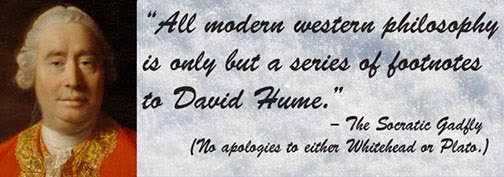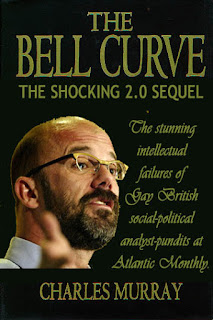 The Triumph of Christianity: How a Small Band of Outcasts Conquered an Empire
The Triumph of Christianity: How a Small Band of Outcasts Conquered an Empire by
Bart D. Ehrman
My rating:
2 of 5 stars
Nice try in theory, falls well short in reality
This was a book tough to rate.
I generally like Ehrman. I generally think that mythicists unfairly belittie him, though I disagree with some specifics of his own supporting material offered for a historic Jesus.
The idea of the book isn’t new, but presented in popularizing form from a knowledgable New Testament scholar, promised to be good, possibly very good.
But, it fell short. Short enough in some ways that I took fairly detailed notes at chapter breaks.
Without explicitly saying so, Ehrman seems to indicate that Christian evangelism and Christiam miracle-working both had moderate boosts for the early decades of Christianity, but then it was primarily word-of-mouth, just like you and I buy a car or toothpaste today.
However …
First, the evangelism issue is nowhere near as simple as Ehrman paints.
First, we know that Christianity was NOT the only evangelistic religion of antiquity.
Ashoka’s Buddhist missionaries to the West went as far as Macedonia and Cyrenaica. Four hundred years later, Clement of Alexandria and other Christian fathers knew about ongoing Buddhist proselytizing. And, Will Durant even speculated it may have been an element in Christiann missions. See more
here.
Either Ehrman is surprisingly uninformed here. Or else, Ehrman’s definition of antiquity is narrow. Neither speaks well for this book.
That said, per reading between the lines in Acts, and in some of Paul’s letters, and my take on J. Massyngberde Ford’s
Anchor Bible volume on who wrote the original core of Revelation, we know that at least a few followers of John the Baptist evangelized.
Paul himself mentions Apollos and Peter, even talking about Peter getting paid to take his wife with him.
So, Ehrman has a foul ball here.
On the miracle working, whether real or not, Ehrman doesn’t mention that this was common outside Christianity. Indeed, Jewish charismatics such as Honi the Circle Drawer come to mind. Or Morton Smith’s “Jesus the Magician.” Or the name Simon Magus. Ehrman doesn’t go into a lot of depth here. He even mentions Apollonius of Tyana, the contemporary of Jesus, but never goes into detail about his own reported miracle-working.
So, if Christian miracles were more powerful than Jewish, Greek philosophical, or pagan religious ones, why? They were all common.
It’s true that no ancient author writes an unbiased account of this in detail. But Ehrman, while noting that no actual such miracles likely happened, doesn’t explain why Christians were perceived to be (as he would seemingly have us believe) better miracle-workers or magicians.
And, beyond the scope of the book, this also is no different from Exodus showing Moses and Aaron outdueling the Pharaoh's magicians. Or 19th-century European missionaries telling stories about wonderworking to the dusky pagans of darkest Africa. Or 9th-century Carolinian missionaries supposedly outdueling pagan Saxon and Slav religious leaders.
All Ehrman is doing is doubling down on repeating Christian myth.
And, if evangelism were as low as Ehrman thinks it was after Paul, and pagans and philosophers did magic, too, then why was word-of-mouth as successful as Ehrman thinks it was?
Reality is that, with people like Polycarp, or Clement of Rome, their letters to other churches were surely part of an ongoing program not just of church maintenance but church planting and spreading. Look at the pseudo-Pauline letter to “Ephesians.” Originally a circular letter, it probably was written in similar spirit.
And, the third failing, a partial one.
I agree with Ehrman that many of the details of Rodney Stark’s projected growth rates of Christianity don’t withstand scrutiny.
However, even though Decius’ persecution wasn’t specifically against Christianity, Diocletian’s was. In a sort of analogy, American whites will start to flee suburban neighborhoods and even whole communities when an influx of minority population, and above all, African-American population, hits a certain percentage, usually around 10 percent.
Ehrman doesn’t ask if a similar phenomenon were in play here. If it was, his believed population percentage of Christians, empire-wide, was too low at the time of Diocletian to be such a trigger. Now, the persecutions were carried out most commonly in the eastern half of the empire, and we have some fairly good indications Christianity was stronger there.
Nonetheless, Ehrman doesn’t follow up.
A fourth partial failing, in my opinion?
Ehrman seems to believe Christianity was not just majority-gentile, but strongly so, by circa 100 CE.
Yet, he fails to mention the “desynagoging” that happened circa 100 CE, per John. If this really did happen, it undercuts Ehrman’s thesis. If it didn’t, he should have offered a bit of exegesis on John here to explain this.
Despite John speaking bluntly of “the Jews,” I think something did happen.
Finally, Ehrman makes a partial version of the same error Stark does on population growth, and it’s connected to his overlooking or ignoring Buddhist evangelism.
He focuses on growth within the Roman Empire.
Armenia became officially Christian in 301 CE, nearly a century before Theodosius so proclaimed Rome. Various kingdoms that today make up Georgia became officially Christian before that time. Ulfilias proselityzed Goths, presumably with some Goths previously Christian, before Theodosius. Legends of Thomas Christians aside, there were Christians in India before this time. Ditto for ancient Nubia, beyond Rome’s Nile frontier.
In critiquing and criticizing Stark, I have noted all of this and said that at least 10 percent of Christians at the time of Constantine were outside imperial borders.
And, of course, by the period that closes Ehrman’s book, Christianity had not swept “the world.”
Finishing up this last section of the notes as I got ready to post this led me to take Ehrman down from three to two stars. Several three-star readers seemed too kind in their detailed reviews.
Ehrman – and his agent who suggested this – should either have committed to an additional 20-30 pages and more rigor, or else suggested this as a series of magazine essays only, or similar.
The one problem with this review is that, at least on Amazon, where I read through reviewers, it basically left me in the company of mythicists who wrongly attack Ehrman. I gave several them a piece of my mind on their reviews.
View all my reviews









